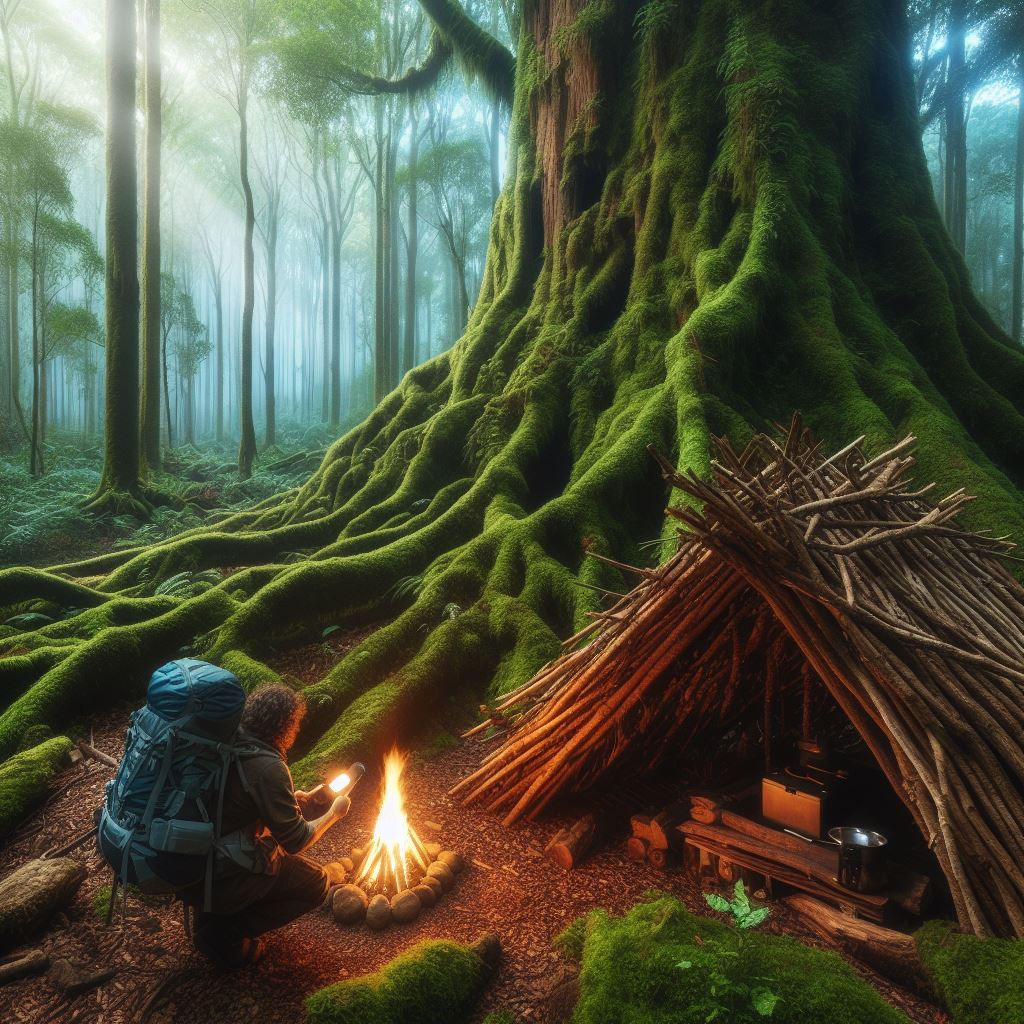Are you a beginner prepper looking for information on survival basics? With the world becoming increasingly unpredictable, taking steps to ensure your safety is essential. Preparing ahead of time in case of an emergency can be intimidating but being informed and knowledgeable is power! That’s why I’m here to walk you through the ins and outs of prepping. In this blog post, we’ll cover all aspects of survival prepping so that you have a better understanding when it comes time to decide on investing in preparation tools or supplies. By equipping yourself with comprehensive knowledge related to disaster situations, food and water storage as well as sanitation practices – You’ll put yourself several steps ahead when things don’t go as planned. Let’s dive into setting up that plan today!
What is Prepping and Why Should You Do It – A Beginner’s Guide
Prepping, short for “preparing,” involves taking practical measures to ensure you’re ready for unexpected crises that can arise at any time. Prepping can range from storing food and water supplies to learning basic survival skills like lighting a fire and building a shelter. Though prepping may seem overwhelming at first, with a little bit of effort and investment, it can go a long way in safeguarding you and your loved ones during uncertain times. So, is it time to start prepping? Absolutely! The world can be unpredictable, and prepping is a smart way to stay prepared for any eventuality. But, don’t worry, you don’t have to do it all in one go. Start small and build your prepping skills and supplies little by little, you might be surprised at how easy and fun it can be.
Understand the Different Types of Disasters That Could Happen
Being prepared is the best way to protect yourself and your loved ones in the event of a disaster. It’s important to understand the different types of disasters that could happen. Natural disasters can strike at any moment, and being prepared for them can quite literally save your life. There are several types of natural disasters, including earthquakes, hurricanes, tornadoes, floods, wildfires, and tsunamis. It’s essential to create an emergency plan and ensure that you and your family are aware of what to do in each situation. Remember, being prepared can make all the difference when it comes to staying safe in the event of a natural disaster.
Stockpiling Supplies for Emergencies
Emergencies can happen at any time, and it’s always best to be prepared. Stockpiling emergency supplies is an essential step to ensure that you and your family are well taken care of during a crisis. These supplies should include necessities such as water, food, medication, first aid items, and communication tools. Don’t forget to pack personal items, such as hygiene products and important documents as well. Remember that emergency supplies should be tailored to your specific needs, so take some time to consider what you and your family might require in the event of an emergency. While it’s impossible to predict what kind of emergency could occur, having a stockpile of essential supplies can provide peace of mind and potentially save lives.
Creating an Emergency Plan to Keep Your Family Safe
In times of crisis, having an emergency plan in place can be critical in keeping your family safe. It’s important to not only prepare for emergencies but to also have a well-thought-out evacuation plan. Knowing the best escape routes and establishing meeting locations beforehand can help you and your family act quickly and minimize the risk of injury or danger. Additionally, it’s important to have a plan for sheltering in place if evacuation is not an option. Stay informed on what to do in the event of an emergency and make sure everyone in your family is aware of the plan to increase your chances of staying safe.
How to Store Food for a Long-Term Emergency
When it comes to preparing for a long-term emergency, one of the most important things you can do is ensure you have a proper stockpile of food. But what are the best foods to store in case of an extended emergency? The key is to focus on non-perishable items with a long shelf life. Think canned goods, dried fruits, vegetables, grains, and nuts. It’s also important to consider whether the food requires water for preparation or if it can be consumed as-is. With these considerations in mind, you can assemble a well-rounded stockpile of food that will keep you and your family well-fed during even the most trying of times.
Learn Essential Survival Skills You Need to Know
Learning essential survival skills can be a fun and rewarding experience, whether you’re practicing them at home or out in the great outdoors. With the right knowledge and tools, you can be better prepared for any unexpected situation. Survival skills to practice at home can include things like building a fire, purifying water, and basic first aid techniques. Meanwhile, outdoor survival skills you should know may involve finding food and shelter, navigating using a map and compass, and starting a fire without matches. These skills provide a foundation for self-sufficiency and can help keep you safe in a variety of situations. It’s never too late to start practicing and building your skillset!
Preparing for survival is a necessary part of any level of disaster planning. From having a basic understanding of how to find food and potable water in an emergency, to stocking supplies and creating an emergency plan, you can truly help yourself and your family no matter the scope of the disaster. By following these steps and taking the time to study essential survival skills, you will be giving yourself and your loved ones the resources needed to stay safe during uncertain times. In today’s world, being ready for anything is not just a smart idea—it’s become an act of self-care. So get prepping!


